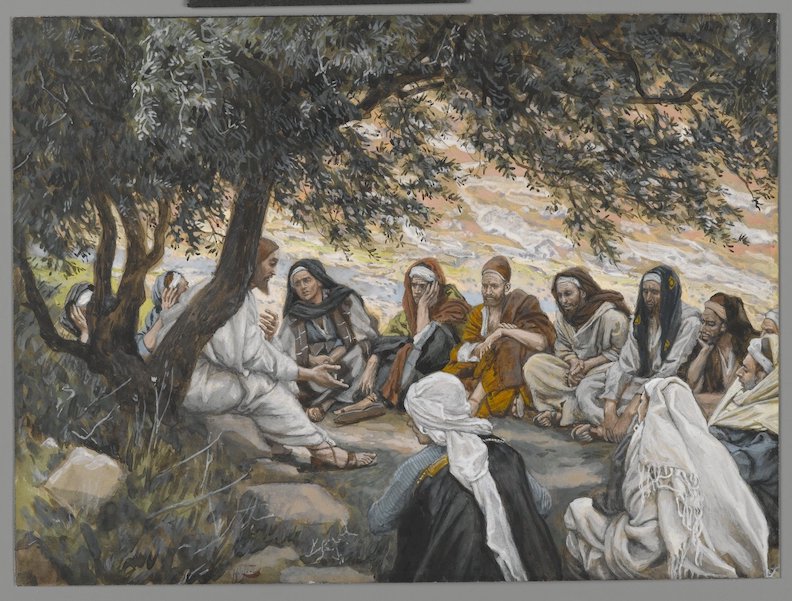In his recent interview with America magazine, Pope Francis states, “A Catholic cannot think either-or (aut-aut) and reduce everything to polarization.” It’s about “both-and, and combining differences.”
He’s right that the Catholic tradition affirms, for example, both faith and reason, Scripture and tradition. Regarding the former, Catholics are neither fideist nor rationalist. We’re not fideists, undervaluing the place of reason. Despite the Fall, and hence the noetic influences of sin, human reason’s powers, and thus its activities, at its deepest foundation remain what God made it.
In itself, then, human reason’s truth-attaining capacity is such that it still has access to reality, to God in some degree, and hence to truth itself. Also, we’re not rationalists because the mind of man is not the measure of all truth. Faith is a way of knowing divine truths, which exceeds reason’s grasp; accordingly, God’s Word, His revealed truth, as transmitted via tradition, and as divine testimony, is an independent ground of assent.
Regarding the latter, the Catholic tradition affirms a pluralistic rather than a monistic pattern of theological authority. This means that tradition and the Church’s teaching office are intrinsically and necessarily related to Scripture, which is the supreme norm of faith, the norma normans non normata (“the norm of norms that is not normed”). In other words, Scripture, tradition, and the Church co-inhere as a network of interdependent authorities, and this entails that the Church can justify no truth from Scripture alone, but for that matter neither from tradition alone nor from the magisterium alone.
Still, it isn’t at all clear what Pope Francis means by “combing differences.” Prima facie, this is not true when we understand that one can’t combine contradictions. If the central truth claims of the Christian faith are true, then Islam can’t be true with respect to its central claims.
In short, we cannot overlook the contradictions, and hence incompatible truth claims that may exist between the Christian revelation and other religious traditions. So, Pope Francis, respectfully put, is mistaken when he states that the Catholic tradition “harmonizes opposing differences.”
Perhaps we can state the pope’s point this way. We must distinguish unity from uniformity, division from diversity, and conflicting from complementary formulations of the propositional truths of faith. Briefly, the unity of meaning and truth in dogma is distinct from its diverse linguistic and conceptual formulations.
This distinction between truth and its formulations in dogma is suggested by John XXIII in his opening address to Vatican II, Gaudet Mater Ecclesia: “The deposit or the truths of faith, contained in our sacred teaching, are one thing, while the mode in which they are enunciated, keeping the same meaning and the same judgment [“eodem sensu eademque sententia”], is another thing.”

The subordinate clause in this passage is part of a larger passage from Vatican I, Dei Filius, and this passage is itself from the Commonitorium 23 of Vincent of Lérins: “Therefore, let there be growth and abundant progress in understanding, knowledge, and wisdom, in each and all, in individuals and in the whole Church, at all times and in the progress of ages, but only with the proper limits, i.e., within the same dogma, the same meaning, the same judgment.”
Unity here is at the level of meaning and truth but not necessarily at the level of formulations. This distinction has ecumenical significance, as argued by Unitatis Redintegratio, namely, that some Christian traditions may have a deeper appreciation of some aspect of the revealed mystery. Their alternative formulations are mutually complementary rather than conflicting formulations of the meaning and truth of dogma.
Moreover, there is a distinction between ecclesial division and legitimate theological diversity. Vatican II states, “discord [division] openly contradicts the will of Christ, provides a stumbling block to the world [Jn 17:21], and inflicts damage on the most holy cause of proclaiming the good news to every creature.”
But ecclesial division is not the same as theological diversity. Catholic ecumenism is not about generating ecclesial unity from ecclesial diversity. There already exists one Church, the Catholic Church, and hence the fundamental ecclesiological question is: how do we understand ecclesial unity and diversity within the one Church?
Finally, Francis’s vague use of the word polarization diminishes the fundamental significance of the religious antithesis in thought and life. This antithesis is neither a personal classification, nor a human invention, but surely a line of division, a sign of contradiction, that passes transversely through the entirety of human existence, which includes the full spectrum of culture.
“Behold, this child [Jesus] is appointed for the fall and rising of many in Israel, and for a sign of contradiction.” (Lk 2:34-35). At the heart of Karol Wojtyla’s (St. John Paul II) reflections – in his 1976 Lenten retreat to St. Paul VI and the Roman Curia, A Sign of Contradiction – is the thesis that the words “‘sign of contradiction’ sum up most felicitously the whole truth about Jesus Christ, his mission, and his Church.”
Jesus Christ, who is, as noted by Wojtyla, “both the light that shines for mankind and at the same time a sign of contradiction.” Wojtyla further adds that Jesus Christ is not only revealed as the light of the world, but also as “that sign which, more than ever, men are resolved to oppose.”
God, judging humans in the light of his perfect justice and holiness, is the author of the antithesis, of the sign of contradiction between good and evil, between the seed of the woman and the seed of the serpent. (Gen 3:15) As stated by Wojtyla, “Here, in the third chapter of Genesis, at the very beginning of the Bible, it becomes clear that the history of mankind, and with it the history of the world with which man is united through the work of divine creation, will both be subject to rule by the Word and the anti-Word, the Gospel and the anti-Gospel.”
To deny this antithesis is to deny Christ and His work in the world through His Church.
*Image: The Exhortation to the Apostles (Recommandation aux apôtres) by James Tissot, c. 1890 [Brooklyn Museum]
You may also enjoy some of our most popular columns from the last dozen years:
Howard Kainz’s How Can Protestants Be Saved?
Fr. Paul D. Scalia’s The Devil, You Say
















